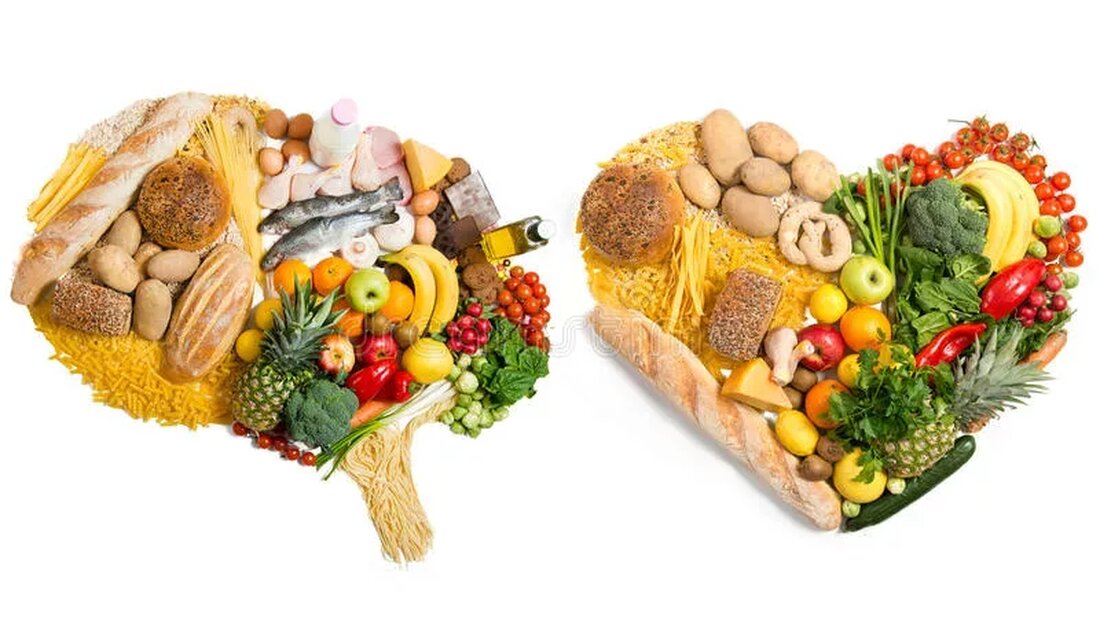Can a high-fat diet be healthy?
Many health -conscious people strive for a low -fat diet. But they could miss many health benefits such as weight loss and a strong cardiovascular system if they miss the essential fats. The way of thinking of fat -free and low -fat diet came from the fact that so many people - good - were fat. It was logical to assume that it was because we ate too much of it. Now we learn more. We now know that the harmful fats are the trans fats, oxidized and heat -processed fats, such as those in margarine, fried food and even cattle with cereals. In daily pursuit of health, we have ...

Can a high-fat diet be healthy?
Many health -conscious people strive for a low -fat diet. But they could miss many health benefits such as weight loss and a strong cardiovascular system if they miss the essential fats.
The way of thinking of fat -free and low -fat diet came from the fact that so many people - good - were fat. It was logical to assume that it was because we ate too much of it. Now we learn more. We now know that the harmful fats are the trans fats, oxidized and heat -processed fats, such as those in margarine, fried food and even cattle with cereals.
In daily pursuit of health, we tried to cut out all fats just to learn that we hurt ourselves. Fortunately, it is a new era and we now know which fats not only have to be cut out, but what we have to include better health, free of premature aging and degenerative diseases.
These good fats are referred to as essential fatty acids. They fall in two categories of omega-3 fatty acids and omega-6 fatty acids. Both types of fats are essential and it is important to obtain them from different sources. The essential fats are most popular because they are most researched. However, there is another fat category that you should consider - the Omega 9. Although not classified as essential fat, it is known that they are necessary for good health.
Let's take a look at the effects of this fat. A lack of these fatty acids can lead to heart disease, depression, fatigue and inflammation that can lead to arthritis and even cancer. The advantages of the intake of the good fats include weight loss, a stronger immune system, anti -inflammatory skills, balanced hormones, thicker hair and healthier, palpable skin.
Omega-6 fatty acids are contained in many sources such as walnut oil, grape seed oil, avocados, hemp oil and pumpkin oil. It was once assumed that American diet simply contains too much of this fat because it is contained in fat meat and food oils. However, it is not the excessive consumption of the omega-6 fatty acids, because they are absolutely necessary for survival-so we consume them.
The problem lies in the processing of food and the balance of fat. First of all, cooking or heating these foods (like the meal oil) will break the EFA chains and make the healthy fats unusable. We also know that there is a difference between healthy omega-6 fats and the trans fats that arise from cooking and fatty meat. In addition to this problem, we consume too little omega-3 and omega-9 food, which leads to an imbalance in our nutrition and our health.
Where can we get the other fats we need? Some of the best sources of omega-3 fatty acids include flaxseeds and their oil, walnuts and their oil, wheat germ oil, salmon, halibut, snapper, scallops and winter squash. Omega-9 fatty acids are found in food sources such as olive oil, sesame oil, avocados, peanuts (raw nuts made from bottled oil), almonds, cashews, pecans, macadamia nuts and hazelnuts.
The consumption of the essential fats is recognized as an important health factor every day. We have already found some of the above advantages. So what could there be? In addition to these health advantages, the consumption of healthy fats can stabilize blood sugar. If you are consumed regularly, you will feel full and satisfied longer, so you eat less, less cravings and less fatigue. In addition, the inclusion of this fat in your daily diet has anti-aging effects on skin, hair and hormone system. Essential fats also have detoxifying properties.
If you want additional advantages, take a supplementary form that is cold -pressed and minimally processed. You will usually find this in the cooling area of your local health food store. No matter what shape you choose, the advantages of EFAS are varied. So take them into your diet.

 Suche
Suche
 Mein Konto
Mein Konto
